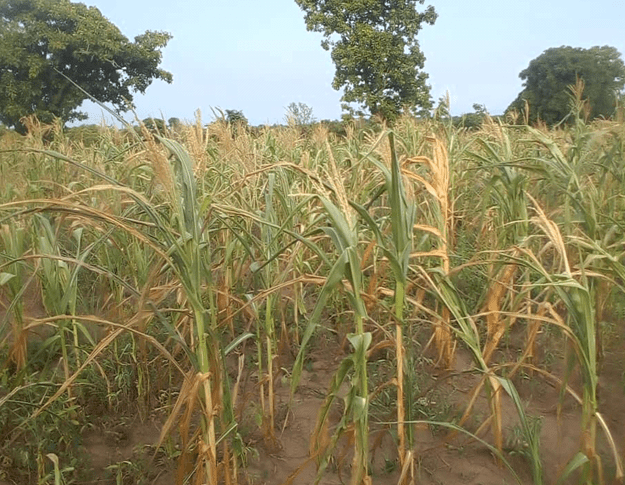An alarming 60 percent of the Northern Region’s cultivated land has been severely affected by a prolonged dry spell.
According to B&FT’s regional correspondent, a total 460,784 hectares of farms – representing 60 percent of the region’s cultivated land – is affected. Various commodities including maize, rice, soybean, millet, cassava, sorghum, cowpea, groundnut and yam have all been affected.
The worst-hit communities include Yendi, Savelugu and Gushegu municipalities, as well as Karaga, Mion, Tolon and Nanumba North districts.
The dry spell poses a significant threat to the region’s food security, prompting calls for government intervention to support smallholder farmers in reviving crop production.
Consequently, Northern Regional Crop Officer-Department of Agriculture, Dauda Abdul Salam met with stakeholders in an emergency meeting. The meeting aimed to educate participants on effects of the drought and discuss strategies to mitigate its impact on agriculture in the Northern Region.
Funded by the Policy Link project of USAID’s Feed the Future, the meeting focused on addressing challenges posed by the drought.
The Minister for Food and Agriculture, Bryan Acheampong, highlighted a series of measures that government has put in place to lessen the current dry spell’s effect on farmers.
Government has decided to provide financial support of GH¢1,000 per hectare to vulnerable farmers, as well as food grants that enable them to meet minimum nutritional requirements.
Mr. Acheampong noted that the dry spell has affected over 980,000 farmers cultivating an estimated 1.8 million hectares, with potential losses estimated at GH¢22.2billion – adding that the affected regions contribute about 62% of the country’s grain supply annually.
Additionally, government will give fast-maturing seeds and fertiliser to farmers whose crops failed due to lack of rain so they can replant.
Mr. Acheampong said government has secured the commitment of partners and stakeholders, both internal and external, to avert food crises. The farmers were expected to realise about GH¢22billion in revenue if the season had been successful.
In a decisive move to address the emerging food crisis, government has imposed an immediate ban on exporting grains – including rice, corn and soy. The Minister of Food and Agriculture has urged those with grain stock to sell to government through MoFA district directors, aggregators or the directorate of crops to alleviate the impact on farmers.










